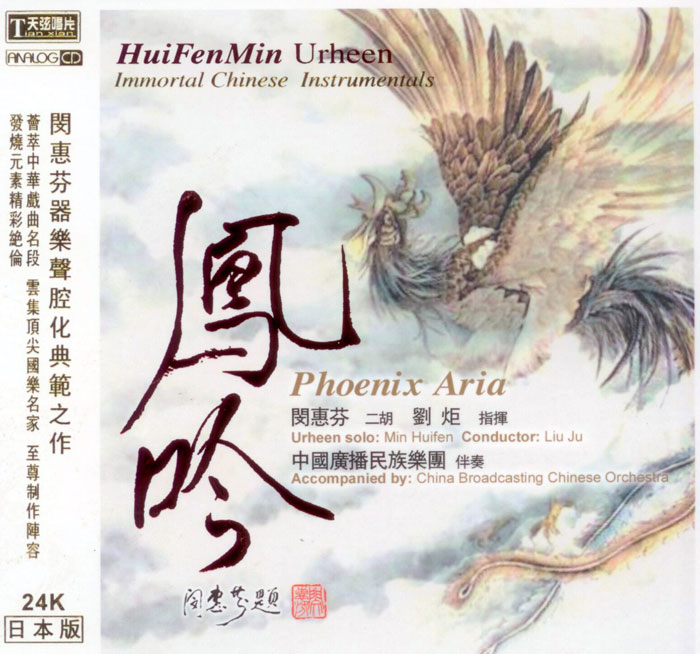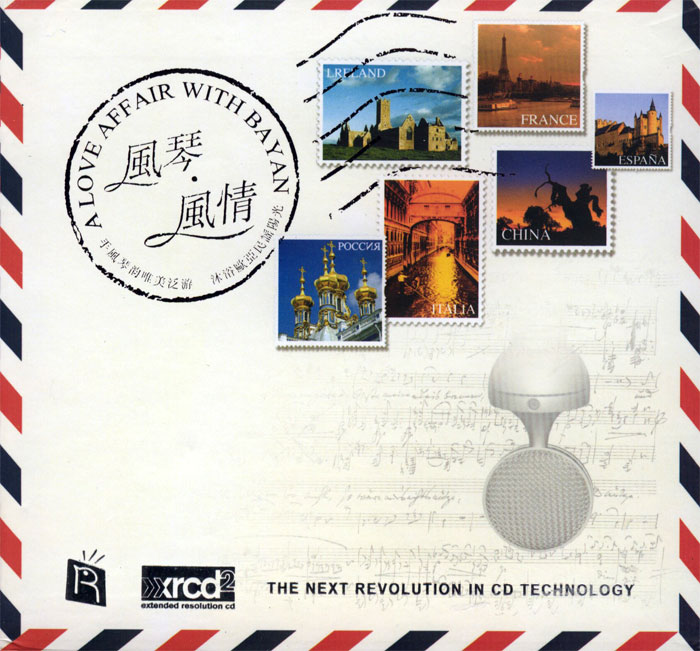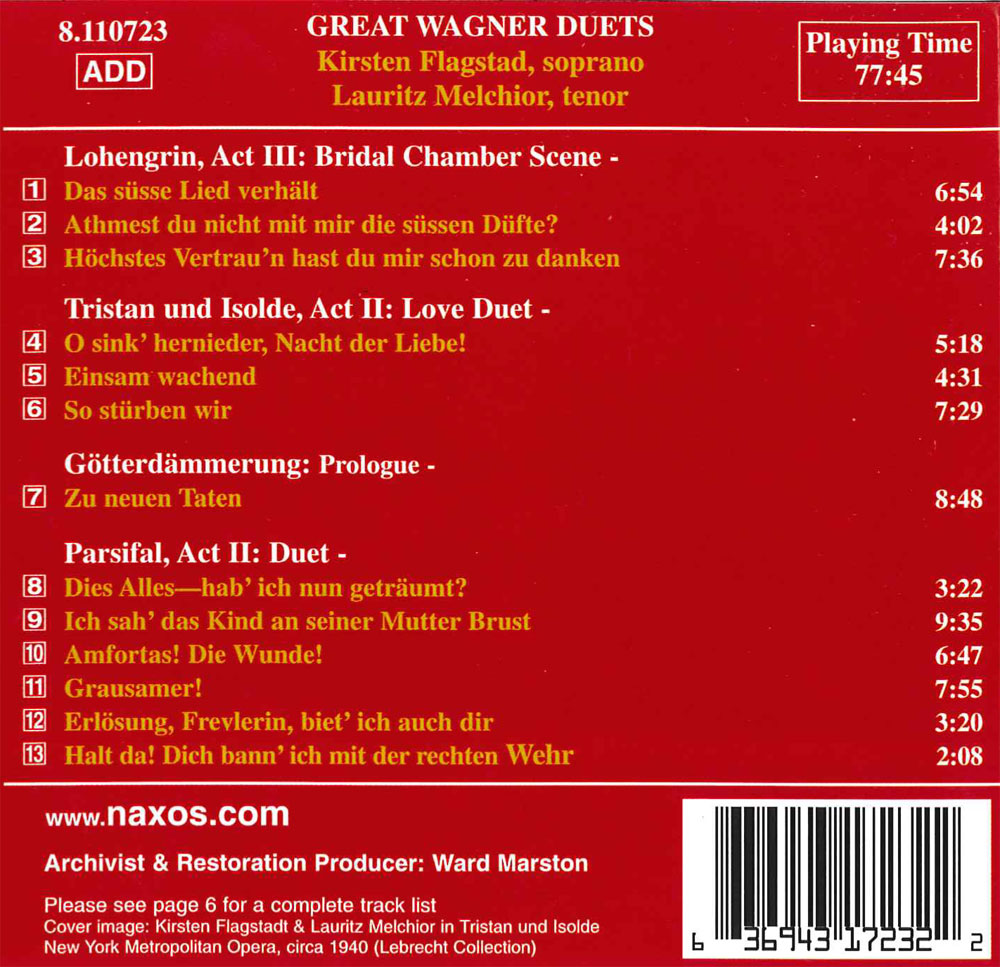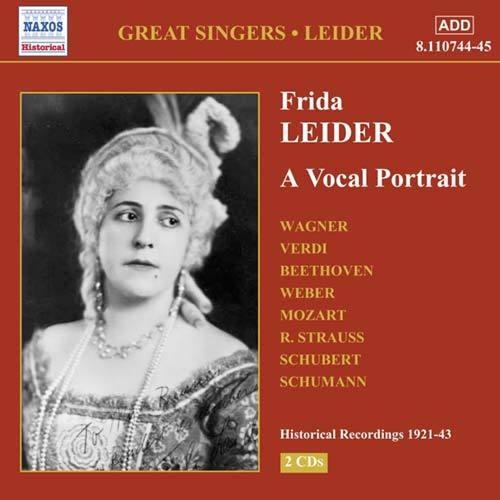Logowanie
Dlaczego wszystkjie inne nie brzmią tak jak te?
SpeakersCorner - OSTATNIE!!!!
RAVEL, DEBUSSY, Paul Paray, Detroit Symphony Orchestra
Prelude a l'Apres-midi d'un faune / Petite Suite / Valses nobles et sentimentales / Le Tombeau de Couperin
Samozapłon gwarantowany - Himalaje sztuki audiofilskiej
PROKOFIEV, Stanislaw Skrowaczewski, Minneapolis Symphony Orchestra
Romeo and Juliet
Stanisław Skrowaczewski,
✟ 22-02-2017
BARTOK, Antal Dorati, Philharmonia Hungarica
Dance Suite / Two Portraits / Two Excerpts From 'Mikrokosmos'
Samozapłon gwarantowany - Himalaje sztuki audiofilskiej
ENESCU, LISZT, Antal Dorati, The London Symphony Orchestra
Two Roumanian Rhapsodies / Hungarian Rhapsody Nos. 2 & 3
Samozapłon gwarantowany - Himalaje sztuki audiofilskiej
Winylowy niezbędnik
ClearAudio
Cartridge Alignment Gauge - uniwersalny przyrząd do ustawiania geometrii wkładki i ramienia
Jedyny na rynku, tak wszechstronny i właściwy do każdego typu gramofonu!
ClearAudio
Harmo-nicer - nie tylko mata gramofonowa
Najlepsze rozwiązania leżą tuż obok
IDEALNA MATA ANTYPOŚLIZGOWA I ANTYWIBRACYJNA.
Wzorcowe
Carmen Gomes
Celebrating the art and spirit of music - vol. 5 - Reference Songs
- CHCECIE TO WIERZCIE, CHCECIE - NIE WIERZCIE, ALE TO NIE JEST ZŁUDZENIE!!!
Petra Rosa, Eddie C.
Celebrating the art and spirit of music - vol. 3 - Pure
warm sophisticated voice...
SAMPLER - STS DIGITAL, Gregor Hamilton
Celebrating the art and spirit of music - vol. 2 - Love songs from Gregor Hamilton
...jak opanować serca bicie?...
SAMPLER - STS DIGITAL
Celebrating the art and spirit of music - vol. 1 - Leonardo Amuedo
Największy romans sopranu z głębokim basem... wiosennym
Lils Mackintosh
Celebrating the art and spirit of music - vol. 4 - A Tribute to Billie Holiday
Uczennica godna swej Mistrzyni
WAGNER, Kirsten Flagstad, Lauritz Melchior
Great Wagner Duets
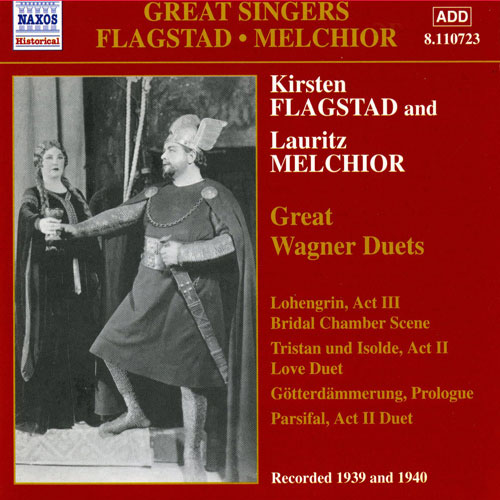
- Kirsten Flagstad - soprano
- Lauritz Melchior - tenor
- WAGNER
Kirsten Flagstad and Lauritz Melchior The Complete RCA Victor Wagner Duets. Lohengrin (1850) - Tristan und Isolde (1865) - Götterdämmerung (1876) - Parsifal (1882) The present extracts from four of Wagner’s operas comprise all the duets that Flagstad and Melchior recorded for RCA Victor during their famed partnership of the 1930s and early 1940s. This was a truly unsurpassed matching of voices, one that has never been outclassed in the history of Wagner on record. The duets from Act 2 of Tristan und Isolde and the Prologue to Götterdämmerung were made at the Victor Studios, Hollywood, in November 1939, as part of a session during which Flagstad also recorded solos from the same operas. It is surely for their appearances together in Tristan that these two singers are best remembered and this version of the love duet (here with one internal cut and the customary concert ending) finds them in ecstatic voice. Indeed, we hear more of Flagstad than might be expected for she also sings the first, distant, warning of Brangäne, Isolde’s maid; (the second, shorter warning is played by the orchestra alone). The extract from Götterdämmerung is taken at a good, brisk pace, probably to accommodate it safely on two 78rpm sides, and our Brünnhilde and Siegfried truly let fly, exchanging vows and love gifts as the hero departs to seek out more epic exploits. Their vocal energy is well exemplified here; both are so secure, rich and expressive, showing that they must have made a truly inspiring pair on stage. Two more sessions arranged by Victor in November 1940 resulted in further Wagnerian recordings. Edwin McArthur, Flagstad’s long-time accompanist and confidant, and the conductor of the sessions represented here, recalled in his biography Flagstad - A Personal Memoir (published by Da Capo Press in 1965): "We spent two days in Philadelphia and the orchestra was drawn from the Philadelphia Orchestra. For Melchior I conducted several large tenor excerpts, and with Flagstad and him together we made the big duet from Act II of Parsifal and the Bridal duet from Act III of Lohengrin. Flagstad often said that she thought these the best recordings she had ever made. The orchestra was superb, and the wonderful acoustics of the Academy of Music in Philadelphia enhance the quality of the recording". The extended scene from Parsifal includes the crazed Kundry’s attempted seduction of the young hero, his rejection of her and his sudden understanding of the suffering of Amfortas, ruler of the Kingdom of the Grail. This duet is sung complete (including a few phrases from the magician, Klingsor) and is a formidable memento of the opera that Flagstad and Melchior first sang together at the Met in April 1935. The Lohengrin duet, (substantially complete but with an internal cut), closes with Elsa’s Allewiger, erbarm dich mein!, the plea for mercy following Lohengrin’s murder of Telramund. How contrasted the moods of these two duets are, and how perceptively the singers differentiate them. These were the last commercial recordings that the two singers made together, for five months later Flagstad left the USA, never to sing with, indeed never to meet, Melchior again. Classic interpretations, then, which demonstrate (in fine sound) the special qualities that these two great Scandinavian singers brought to their performances. In a short joint career of a little over six years they became, and still remain, legends in the world of Wagnerian opera. Kirsten Flagstad was born in Hamar, Norway in 1895, made her début at the National Theatre in Oslo at the age of eighteen and later sang at the Gothenburg Opera Company in Sweden. At this time she had a wide repertoire, including Desdemona (Verdi’s Otello), Minnie (La fanciulla del West), Marguerite (Gounod’s Faust) and Agathe (Der Freischütz). In 1930, on her marriage to Henry Johansen, she retired from the stage but came to international prominence on resuming her career in 1933, when she sang at Bayreuth. After débuts in New York (1935) and in London the following year, she sang Wagnerian rôles almost exclusively, Fidelio being an exception. Pre-war performances throughout the USA and at Covent Garden consolidated her position as the finest Wagnerian soprano of the century. In 1941 Flagstad joined her husband in occupied Norway and for several years she sang comparatively little. After the war she gave concerts elsewhere in Europe, returning in 1947 to the USA, where in some quarters she was regarded (surely unjustifiably) with suspicion - her loyalty to the Allied cause had been called into question. Whilst singing with success in several American cities, she did not perform again at the Met until 1951. Flagstad was at Covent Garden from 1948 to 1951 and is fondly remembered for appearing in Purcell’s Dido and Aeneas at Bernard Miles’ Mermaid Theatre in London. After retirement from the stage she became Director of the Norwegian National Opera in 1959 and died in Oslo in 1962. Lauritz Melchior was born in Copenhagen in 1890 (on the same day as Beniamino Gigli) and, having studied at the Royal Opera School, made his (baritone) début in I pagliacci. After re-training, he made a second (tenor) début five years later as Tannhäuser. Under the patronage of author Hugh Walpole further study followed in London, where he first sang in 1920. He performed at Covent Garden from 1924, returning there regularly until the war, and appeared in Berlin, Hamburg and Bayreuth, his Metropolitan Opera début being in 1926. From 1929 until retirement in 1950, Melchior’s career was based in New York, with guest appearances in Europe and South America. Melchior excelled in Wagnerian rôles, but also achieved success as Florestan (Fidelio) and Otello. After leaving the Met he turned to Hollywood and Broadway, his films including Luxury Liner and The Stars are Singing, and toured extensively in his own stage show. Few would disagree that Melchior was the greatest Wagnerian tenor of the twentieth century. His strong, untiring voice served him superbly for fifty years and if he was sometimes careless over note values and texts, it seemed a small price to pay. *It is said that Sir Thomas Beecham closed a speech of congratulation to Melchior on the occasion of his 100th appearance as Siegmund with the words "Quite soon we shall expect you to know the rôle by heart!". Unkind? No. Surely the good-humoured Melchior himself would have led the laughter. He died in California in 1973. Born in Denver, Colorado in 1907, Edwin McArthur studied piano at the Juilliard School and then with Julia Lhevinne, soon becoming the accompanist to several famous singers. He auditioned successfully for Flagstad in 1935 and, in his own words "Thus began our long association, a remarkable musical collaboration and a close and affectionate friendship that lasted until she died". He conducted for her at the Met in 1940, became Music Director of St Louis Municipal Theatre Association in 1945 and was later appointed Head of Opera at Eastman School of Music. Edwin McArthur died in New York in 1987. *Story taken from More Legendary Singers by Nigel Douglas, published by André Deutsch
